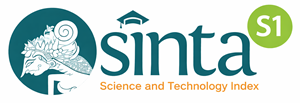AL-FĀRĀBĪ’S SYNTHESIS
PLATO, ARISTOTLE, AND THE SHAPING OF ISLAMIC PHILOSOPHY
DOI:
https://doi.org/10.20871/kpjipm.v10i2.374Keywords:
Al-Fārābī, Aristotle, Epistemology, Ontology, PlatoAbstract
The discourse surrounding Islamic philosophy has garnered significant attention among scholars, highlighting a multitude of benefits and limitations related to its authenticity and its position as an essential component of Islamic cultural legacy. Some believe that Islamic philosophy is simply a reinvention of Greek philosophical concepts, thus undermining its credibility. Conversely, proponents advocate the integration of Greek philosophical principles with Islamic tenets as a synthesis rather than a simple replication. This article aspires to delve into these diverse perspectives by analyzing the historical transformation of Islamic philosophy, with a spotlight on its initial periods, particularly stressing the impact of Abū Naṣr al-Fārābī (d. 951 CE), a significant figure in Islamic philosophy who synthesized Greek philosophical ideas, notably those of Aristotle and Plato, to construct a unique Islamic philosophical framework. Through a qualitative conceptual analysis, this article evaluates the authoritative dimensions and philosophical disputes between Aristotle and Plato, particularly concerning ontology and epistemology, while accentuating al-Fārābī’s endeavors to harmonize their philosophical positions. This article suggests that al-Fārābī engaged in a critical examination of both Plato's and Aristotle’s perspectives on universal truth and human cognition, which ultimately led him to incorporate their philosophies into a unique Islamic framework.
Downloads
References
Adamson, Peter, and Richard C. Taylor, eds. 2005. The Cambridge Companion to Arabic Philosophy. Cambridge: Cambridge University Press.
Ali, Ishraq. 2022. “On the Transmission of Greek Philosophy to Medieval Muslim Philosophers.” HTS Teologiese Studies / Theological Studies 78 (4): 8. https://doi.org/10.4102/hts.v78i4.7504.
———. 2023. “Philosophy and Religion in the Political Thought of Alfarabi.” Religions 14 (7): 908. https://doi.org/10.3390/rel14070908.
Ali, Ishraq, and Qin Mingli. 2019a. “Distinguishing the Virtuous City of Alfarabi from That of Plato in Light of His Unique Historical Context.” HTS Teologiese Studies / Theological Studies 75 (4): 9. https://doi.org/10.4102/hts.v75i4.5370.
———. 2019b. “On the Relation of City and Soul in Plato and Alfarabi.” Journal of Arts and Humanities 8 (2): 27–34. https://doi.org/10.18533/journal.v8i2.1568.
Ali, Ishraq, and Mingli Qin. 2020. “City and Soul in Plato and Alfarabi: An Explanation for the Differences Between Plato’s and Alfarabi’s Theory of City in Terms of Their Distinct Psychology.” Axiomathes 30 (1): 91–105. https://doi.org/10.1007/s10516-019-09439-w.
Alper, Ömer Mahir. 2007. “Al-Farabi’s Interpretation of Aristotle as an Authority in the Philosophy.” İstanbul Üniversitesi İlahiyat Fakültesi Dergisi
Darulfunun İlahiyat, no. 15, 131–52.
Burhanuddin, Nunu, and Ghilmanul Wasath. 2020. “Reactualization of Al-Farabi’s Philosophy.” In Proceedings of the 2nd International Conference on Islam, Science and Technology (ICONIST 2019), 5–9. Atlantis Press. https://doi.org/10.2991/assehr.k.200220.002.
Copleston, Frederick. 1952. A History of Philosophy Volume 1: Greece and Rome. New York: Doublay.
Druart, Thérèse-Anne. 2019. “From Plato to Al-Fârâbî.” Journal of World Philosophies 4 (1): 156–60.
Faḫrī, Māǧid. 2002. Al-Fārābi, Founder of Islamic Neoplatonism: His Life, Works and Influence. Great Islamic Thinkers. Oxford: Oneworld.
Fārābī, Abū Naṣr al-. 1985a. Al-Farabi on The Perfect State: Mabadi’ Ara Ahl Al-Madina. Translated by Richard Walzer. Oxford: Clarendon Press.
———. 1985b. Al-Jam‘ Bayn Ra’y al-Ḥakīmayn. Tehran: Al-Zahra Publisher.
Furley, David, ed. 1999. Routledge History of Philosophy Volume 2: From Aristotle to Augustine. London New York: Routledge.
Gaarder, Jostein. 2000. Dunia Sophie: Sebuah Novel Filsafat. Translated by Irwan Syahrir. Bandung: Mizan.
Griffel, Frank. 2021. The Formation of Post-Classical Philosophy in Islam. New York: Oxford University Press.
Hadi, Amirul. 2024. “The Relation of Metaphysics to Political Theory in the Thoughts of Al-Farabi.” Buletin Al-Turas 30 (1): 13–24. https://doi.org/10.15408/bat.v30i1.36137.
Rev, Robert Hammond. 1947. The Philosophy of Al-Farabi and Its Influence on Medieval Thought. New York: The Hobon Book Press.
Hayes, Josh. 2022. “Al-Fārābī’s Phenomenology of the Political Imagination.” Iranian Yearbook of Phenomenology 1 (1): 63–84. https://doi.org/10.22034/iyp.2020.239888.
Hitti, Philip K. 1946. History of the Arabs. London: Macmillan and Co.
Hodgson, Marshall G. S. 1974. The Venture of Islam, Volume 1: The Classical Age of Islam. Chicago, Ill: University of Chicago Press.
Humaidi, Humaidi. 2018. “Hubungan Harmonis Antara Sains dan Agama dalam Pemikiran Al-Farabi dan Ikhwan Al-Shafa.” Kordinat: Jurnal Komunikasi Antar Perguruan Tinggi Agama Islam 17 (1): 142–66. https://doi.org/10.15408/kordinat.v17i1.8106.
Jordan, William A. 2005. Ancient Concepts of Philosophy. Florence: Taylor and Francis.
Khoshnaw, Mahmood N. 2014. “Alfarabi’s Conversion of Plato’s Republic.” Advances in Literary Study 2 (1): 5–8. https://doi.org/10.4236/als.2014.21002.
Kuru, Ahmet T. 2019. Islam, Authoritarianism, and Underdevelopment: A Global and Historical Comparison. New York: Cambridge University Press.
Mahdi, Muhsin. 1962. Alfarabi’s Philosophy of Plato and Aristotle. New York: The Free Press of Glencoe.
Makhlouf, Peter. 2024. “Prophecy Between Poetics and Politics from Al-Farabi to Leo Strauss.” International Journal of the Classical Tradition 31 (1): 1–29. https://doi.org/10.1007/s12138-022-00632-8.
Marenbon, John. 2013. “Ernest Renan and Averroism: The Story of a Misinterpretation.” In Renaissance Averroism and Its Aftermath: Arabic Philosophy in Early Modern Europe, edited by Anna Akasoy and Guido Giglioni, 273–83. Dordrecht: Springer Netherlands. https://doi.org/10.1007/978-94-007-5240-5_14.
McGinnis, Jon, and David C. Reisman, eds. 2007. Classical Arabic Philosophy: An Anthology of Sources. Indianapolis: Hackett Pub. Company.
Nasikhin, Nasikhin, Ismutik Ismutik, and Ulul Albab. 2022. “Philosophy of Islamic Science in Al-Farabi’s Perspective.” RUSYDIAH: Jurnal Pemikiran Islam 3 (1): 20–34. https://doi.org/10.35961/rsd.v3i1.411.
Nasr, Seyyed Hossein. 2006. Islamic Philosophy from Its Origin to the Present: Philosophy in the Land of Prophecy. SUNY Series in Islam. Albany: State University of New York Press.
Nasr, Seyyed Hossein, and Oliver Leaman, eds. 1996. Enslikopedi Tematis Filsafat Islam: Buku Pertama. Bandung: Mizan.
Nath, Shanjendu. 2014. “Is Plato a Perfect Idealist?” IOSR Journal of Humanities and Social Science 19 (3): 22–25. https://doi.org/10.9790/0837-19352225.
Neria, Chaim Meir. 2013. “Al-Fārābī’s Lost Commentary on The Ethics: New Textual Evidence.” Arabic Sciences and Philosophy 23 (1): 69–99. https://doi.org/10.1017/S0957423912000082.
Patimah, Patimah, Hamid Fahmy Zarkasyi, and Saim Kayadibi. 2022. “Examining Discourses on Integration of Philosophy and Religion (Analysis from Al-Ghazali to Al-Attas).” Tasfiyah: Jurnal Pemikiran Islam 6 (2): 165–94. https://doi.org/10.21111/tasfiyah.v6i2.8141.
Plato. 1993. Phaedo. New York: Cambridge University Press.
Quraishi, Muhammad Umar, and Mujahid Hussain Sargana. 2023. “Contemporary Applications to Utopian Aspirations: Exploring Al-Fārābī’s Political Philosophy from His Book Āra’ Ahl Al Maḍinat Ul Fāḍilah and Implications for Current Muslim Countries.” Journal of Integrated Sciences 4 (1): 1–30.
Rahaman, Md Zizaur. 2023. “Revisiting Plato’s Theory of Idea.” International Journal of Current Science 13 (1): 415–23.
Rudolph, Ulrich, Rotraud Hansberger, and Peter Adamson, eds. 2022. Philosophy in the Islamic World. Boston: Brill.
Saleh, Saleh, and Humaidi Humaidi. 2022. “Transformasi Diri Berdasarkan Filsafat Jiwa Ibn Sina.” Kanz Philosophia A Journal for Islamic Philosophy and Mysticism 8 (1): 1–30. https://doi.org/10.20871/kpjipm.v8i1.202.
Schweighofer, Erich, and Friedrich Lachmayer. 1997. “Ideas, Visualisations and Ontologies,” September.
Sfetcu, Nicolae. 2022. “Plato’s Philosophy.” ResearchGate. 2022. https://www.researchgate.net/publication/358768206_Plato's_Philosophy.
Shah, M. Maroof. 2015. “Revisiting Al-Farabi’s Legacy: Engaging with the Culture of Political Islam.” The Journal of Central Asian Studies 22:35–72.
Steiris, G., G. Nurysheva, and G. Konayeva. 2019. “Al-Farabi on the Interdependence of Religion and Politics.” Вестник КазНУ. Серия философии, культурологии и политологии 69 (3): 117–26. https://doi.org/10.26577/jpcp.2019.v69.i3.013.
Stroumsa, Sarah. 2019. Andalus and Sefarad: On Philosophy and Its History in Islamic Spain: Jews, Christians, and Muslims from the Ancient to the Modern World. Oxford: Princeton University Press.
Sudarminta, J. 2002. Epistemologi Dasar: Pengantar Filsafat Pengetahuan. Yogyakarta: Kanisius.
Suleimenov, Pirimbek, Yktiyar Paltore, Yesker Moldabek, and Galymzhan Usenov. 2023. “An Analysis of Aristotle’s Principles in Al-Farabi’s Study of Logic in the History and Philosophy of Science.” Acta Baltica Historiae Et Philosophiae Scientiarum 11 (2): 93–110. https://doi.org/10.11590/abhps.2023.2.05.
Welnak, Shawn. 2020. “Alfarabi’s Reestablishment of Philosophy in The Philosophy of Aristotle.” Science et Esprit 72 (1–2): 165–83. https://doi.org/10.7202/1067585ar.
Yazdī, Mehdi Ḥāʼirī. 1992. The Principles of Epistemology in Islamic Philosophy: Knowledge by Presence. New York: University of New York Press.
Yazdi, Mehdi Hairi. 2003. Epistemologi Iluminasi dalam Filsafat Islam: Menghidupkan Cahaya Tuhan. Bandung: Mizan.
Yuslih, Muhammad. 2022. “Political Philosophy: A Comparative Analysis of Al-Farabi and Aristotely’s Thought.” Kawanua International Journal of Multicultural Studies 3 (2): 44–51. https://doi.org/10.30984/kijms.v3i2.240.
Downloads
Published
How to Cite
Issue
Section
License
Copyright (c) 2024 Fithri Dzakiyyah Hafizah, Hadi Kharisman

This work is licensed under a Creative Commons Attribution 4.0 International License.
Most read articles by the same author(s)
- Saeed Zarrabizadeh, Hadi Kharisman, Mendeinisikan Mistisisme: , Kanz Philosophia: A Journal for Islamic Philosophy and Mysticism: Vol. 1 No. 1 (2011): August





























